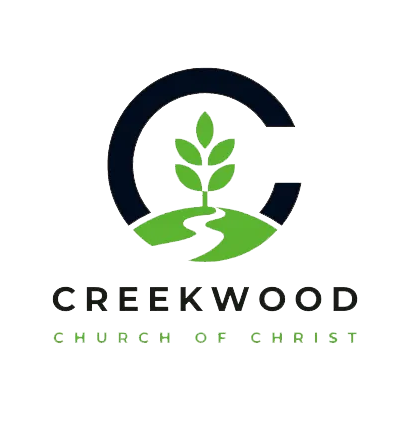Scriptural Qualifications of Deacons
Deacons and the Leadership of the Church
by Daniel B. Wallace, Ph.D.
This essay is a position paper arguing that deacons should be a part of the leadership of a mature or large church. It has three parts: inductive biblical study, conclusions from the biblical investigation, and practical suggestions for today’s church.
I. Inductive Biblical Study
The pattern of church leadership that the New Testament follows finds its seeds in the earliest period. In Acts 6:1-6 we read of the frustration of some members of the early church for not having their needs attended to. Because the church had grown so large, the twelve apostles were not able to handle all the physical needs of the body and proclaim the word. They knew that if they neglected the ministry of the word the church would suffer: “It is not right for us to give up preaching the word of God to serve tables” (v 2). They asked the congregation to choose seven men—men of good reputation and sound character—to perform this task of serving tables. The verb “serve” in v 2 is diakonevw (diakoneo). The cognate noun is diavkono” (diakonos), from which we get “deacon” (cf. 1 Tim 3:8). This word diavkono” does not always have such a technical nuance in the NT. It simply means “servant” in many passages (e.g., Matt 20:26; 22:13; John 2:5; Rom 13:4), “minister” in others (e.g., 2 Cor 3:6; Eph 3:7; Col 1:25).
The question then arises: How should we relate Acts 6 to the doctrine of ecclesiology and to a proper understanding of church leadership? Three options present themselves: Acts 6 gives an essential pattern of church leadership, a valid option of church leadership, or an incidental description that is perhaps irrelevant for church leadership. Further, a combination of these three may be in place (e.g., the number seven seems to be incidental, while the character qualifications of these servants seems to be essential).
Exegetes are divided on this issue, but many see some sort of non-binding pattern in Acts 6. Two things are key in determining this: Luke’s literary purpose in Acts and parallels with later NT writings. Luke describes many things that are almost certainly not valid in the ongoing ministry of the church (e.g., the initial communism of the church, Spirit-baptism after salvation). Thus one must be careful to distinguish those things that seem to have abiding significance from those that do not. One way to get a clue is to look at Paul’s letters. After all, Luke was one of Paul’s traveling companions. When we see parallels in Paul’s letters to what takes place in Acts, there may be a connection. Thus, the fact that deacons in 1 Tim 3:8-13 are to be godly men apparently in charge of the physical and financial well-being of the church is a strong indicator that the pattern set forth in Acts 6 is no accident. As George Knight points out, “The linguistic connections with those who are in 1 Tim. 3:8-13 described with the noun diavkonoi and the verb diakonei’n (used in a technical sense) is striking and is in accord with the division of labor in conceptual terms in Acts 6.”
We will develop this point later, for three key issues are still at stake: Is it significant that the church only added deacons once it reached a certain size? Is it significant that the congregation voted on who should serve the tables? Is it significant that only men were chosen in Acts 6?
The second passage of note is Phil 1:1. Paul addresses the saints at Philippi “together with the bishops and deacons.” Thus, a twofold division of leadership is clearly seen. (Incidentally, bishops were the same thing as elders.) The church at Philippi was probably not very large, though it was well-established. Paul established the church on his second missionary journey. The Jewish element in the city was small enough that no synagogue was found. But Paul found some women who were responsive to the gospel. The church began. By the time he wrote the letter to the Philippians, the church was already ten years old.
The third significant passage is 1 Tim 3:8-13. The third chapter of 1 Timothy addresses two categories of leaders in the church, bishops (elders) and deacons. We have already noted the connection between this text and Acts 6. Suffice it to say here that deacons were assumed to be part of the leadership of the church at Ephesus.
Knight concludes: “These three passages show, then, a twofold division of labor in early, middle and later time periods in the NT church, in key cities in three various geographical areas (Palestine, Greece, and Asia Minor), and in both Jewish and Greco-Roman settings.”
The problem is that few other places seem to speak about deacons. The following is an exhaustive list of all potential passages.
Rom 16:1
“Phoebe, a deacon of the church at Cenchreae” (NRSV). It is of course possible that Phoebe was a servant in the church, a minister of sorts. Whether the term is meant to be taken technically is difficult to tell.
Eph 6:21
“Tychicus . . . is a dear brother and faithful deacon in the Lord.” Again, it is probable that diavkono” simply means “servant” or “minister.”
Col 1:7
“Epaphras . . . is a faithful deacon of Christ on your behalf.” The same problem occurs. This most likely refers to Epaphras as a minister, not a deacon.
Col 4:7
“Tychicus . . . is a beloved brother, a faithful deacon, and a fellow-slave in the Lord.” See discussion at Eph 6:21.
Of these four passages that speak of three individuals (Phoebe, Epaphras, Tychicus), the best candidate for the meaning “deacon” is Rom 16:1, for this is the only text in which the term is related specifically to a church. However, the fact that both Acts 6 and 1 Tim 3 speak of the deacons as adult males suggests that the office was limited to the men. It is best to discuss this issue in the larger context of the role of women in the church.
The lack of mention of deacons in NT passages where elders or bishops are mentioned should also be noted. Acts 14:23, for example, records Paul and Barnabas appointing elders in newly-established churches, but not deacons. Other passages discuss the leadership of the church, though arguably the elders are the only ones explicitly mentioned because the issues involved are those that elders rather than deacons would decide on (e.g., Acts 11:30; 15:2, 4, 6, 22, 23; 16:4; 20:17; 21:18; Jas 5:14; 1 Pet 5:1, 5). It is interesting that 1 Tim 5:17, 19 fits this pattern. In the same book the qualifications for elders (bishops) and deacons are mentioned, but two chapters later only elders are discussed. If chapter three were missing from our Bibles, what kinds of conclusions would we make from their lack of mention in chapter five?
The most instructive text along these lines is Titus 1:5. Paul instructs Titus to appoint elders in every town. The qualifications list in Titus 1:6-9 parallels 1 Tim 3:1-7. But there is no corresponding list for deacons. Why? The church on Crete was relatively young, while Ephesus had a long history and had been, in fact, Paul’s base of operations for nearly three years. It seems likely that for new churches only elders were needed. As a church grew, deacons would be added to the leadership so that the elders could devote themselves more to prayer and teaching. This follows the pattern of Acts 6.
Finally, it should be noted that other terms for church leaders are sometimes used in the NT. In 1 Thess 5:12 we read of “those who labor among you and have charge over you in the Lord.” No other description is given of these leaders. Paul had spent apparently only a few weeks in Thessalonica (cf. Acts 17:1-10), yet appointed leaders before departing. Most likely only elders are in view here. Hebrews 13:7 says, “Remember your leaders, those who spoke the word of God to you.” Again, elders seem to be in view here.
II. Conclusions from the Biblical Study
A. First, it is evident that the early church did not always have deacons. Acts 6:1-6 and Titus 1:5 show this, as do apparently Acts 14:23 and 1 Thess 5:12.
B. It is also evident that deacons were added when the need was felt. That need was in relation to the duties of the elders. When they got detoured from a ministry of prayer and the word, the diaconate was created.
C. There seems to have been a variety of means by which deacons were put in place. In Acts 6, they were elected by the congregation. (Yet even here, the apostles first suggested and permitted such a congregational vote.) But in 1 Tim 3, it is likely that Timothy himself appointed them. This is due to the fact that (1) the parallel in Titus 1:5 involves the appointing of elders by Titus, (2) nowhere do we read of elders being elected (cf., e.g., Acts 14:23), and (3) there is no differentiation between deacons and elders in 1 Tim 3 in terms of how they get into office. In the least, Acts 6 is not a sufficient basis to argue that deacons must always be elected by the congregation.
III. Practical Suggestions for Today’s Church
The results of this study can be applied to today’s church in terms of flexibility and purpose. There should be flexibility in whether to have deacons or not; there should also be flexibility in the means of selection. What guides the former is the task of the elders: if they get distracted from devoting themselves to prayer and the word, they need deacons. What guides the latter is the preference of each individual church.
As a postscript, the addition of deacons to a church really shows how vital is the ministry of prayer and the word among the elders (not just the pastor). Too many elder boards deal with petty issues that shackle them, hindering them from their primary duty. Indeed, too many elders, though godly, are really not “able to teach” (1 Tim 3:2; Titus 1:9; cf. Heb 13:7).
1. Significant along these lines is F. F. Bruce’s suggestion that in Acts 6:2, the act of “serving tables” was most likely not that of food-distribution, but of money-disbursement. At the same time, there are hints that deacons could well be involved in more than merely the distribution of funds. Philip, one of the original seven in Acts 6, was a mighty preacher.
2. G. W. Knight III, Commentary on the Pastoral Epistles (New International Greek New Testament; Grand Rapids: Eerdmans, 1992) 175.
3. The apostles specifically asked that seven men be picked. The Greek word used, ajnhvr, means an adult male.
4. Cf. Titus 1:5, 7; Acts 20:17, 28; 1 Tim 3:1 and 5:17.
5. Ibid.
6. Although 1 Tim 3:11 could possibly be interpreted to mean “deaconess,” rather than wife. Again, this issue should be dealt with under the topic of the role of women in the church.
7. Some see the gift of helps in 1 Cor 12:28 as an oblique reference to the office of deacon (so Knight, 176). This fits nicely with the fact that immediately following this gift is that of administration or leadership. Further, when the rhetorical questions occur in vv 29-30 (“Are all apostles?” etc.) the only gifts not mentioned are helps and administration. If these are offices rather than gifts, such a lacuna is easily explained. (See H. W. Beyer, s.v. kubernhvsi”, in Theological Dictionary of the New Testament 3.1036). However, since the passage is speaking of spiritual gifts rather that merely offices per se, this is doubtful. Anyone could have the gift of helps, whether a deacon or not. Further, the lacuna can be explained in another way: verse 30 adds the gift of interpretation, not originally in the list. This shows that Paul is most likely not trying to be exhaustive in either set.
Qualifications of a Deacon
In I Timothy 3:8-13, Paul gives the qualifications for those who desire to serve as deacons. The first verse in this passage teaches us an important point:
“Likewise deacons must be reverent, not double-tongued, not given to much wine, not greedy for money …” I Timothy 3:8
The first word in this verse, “likewise”, is important to properly understanding this passage. In the verses immediately before this passage (I Timothy 3:1-7), Paul provided the qualifications for the position of a bishop. In discussion the qualifications for a bishop, Paul mentions the “office of a bishop” and states that, “A bishop then must be blameless …” (I Timothy 3:1-2). Just as a “bishop must be …”, a deacon “likewise must be …”. The word “likewise” connects the two as offices that require specific qualifications for appointment. Therefore, just as the word “bishop” denotes a specific office, so does the word “deacon” sometimes denote a specific office, with qualifications listed below:
- reverent, sober
- not double-tongued
- not given (addicted) to much wine
- not greedy for money
- holding the mystery of the faith with a pure conscience
- first be proven (tested)
- blameless
- husbands of one wife
- ruling their children and their own houses well
The scripture also references that deacons’ wives must be: reverent, not slanderers, temperate, and faithful in all things (I Timothy 3:11).
The Work of a Deacon
When compared with the qualifications of an elder, it is apparent that the requirements for a deacon are somewhat more relaxed. This is probably because of the nature of their work. Elders are the spiritual guides who oversee the work of the church, while deacons are servants of the church, who assist with church’s more physical needs.
“Now in those days, when the number of the disciples was multiplying, there arose a complaint against the Hebrews by the Hellenists, because their widows were neglected in the daily distribution.
“Then the twelve summoned the multitude of the disciples and said, ‘It is not desirable that we should leave the word of God and serve tables.
” ‘Therefore, brethren, seek out from among you seven men of good reputation, full of the Holy Spirit and wisdom, whom we may appoint over this business; but we will give ourselves continually to prayer and to the ministry of the word.’ ” Acts 6:1-4
From this passage, we learn two important things about the work and role of deacons. First, we learn that deacons’ mission is to “serve tables”. They were given this physical task to assist the spiritual leaders of the church and to prevent the apostles’ time from being diverted from their spiritual work. Though the required work may vary, the nature of the deacon’s work is clear from this passage. It is physical in nature in opposition to the spiritual responsibilities of the elders and apostles. Examples would include directing the church’s funds to minister to its needy, taking care of the church building, counting weekly contributions, etc. The question of who selects the specific work and appoints deacons to it is the subject of the next point.
From the above passage, we also learn that deacons are appointed by the spiritual leaders to a given work. Since elders are the spiritual leaders of churches today, elders must appoint deacons and select their tasks. Moreover, deacons assist and submit themselves to the authority of the elders, who were commanded to oversee and watch over the local congregation (I Peter 5:1-5). Therefore, the authority of deacons falls within the bounds and oversight of the elders. Because of the deacon’s dependence on the elders for appointment and direction, a church would necessarily be unable to appoint deacons if it did not have elders to guide and oversee them.
Conclusion
The office of deacon is vital part of a local church. They relieve the spiritually focused elders and evangelist from the routine business and physical needs of the church. Though anyone may serve the church in a general sense, only qualified men may be scripturally appointed to this office. The spiritual overseers of the local church, the elders, are responsible for the final appointment of the deacons. The elders also determine the specific work of deacons, relevant to their local congregation. It is essential that we understand the qualifications and work of a deacon, so that we may properly fill this position with godly men who will assist the church. Perversion of their work or qualifications will only lead to further straying from God’s pattern, will, and approval.


